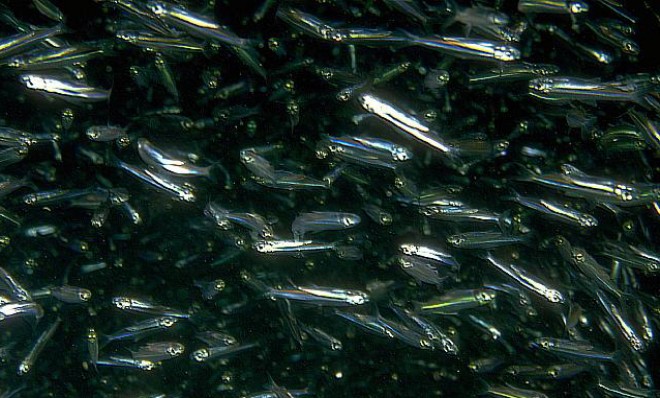How Prozac turns fish into killers
Trace amounts of the drug can make minnows go bad


A free daily email with the biggest news stories of the day – and the best features from TheWeek.com
You are now subscribed
Your newsletter sign-up was successful
Prozac is supposed to improve mood and alleviate negative thoughts. But in fish, it may be doing the exact opposite.
New research has found that fish that swim in waterways tainted by antidepressants can become anxious, aggressive, and even, in some cases, homicidal.
Scientists at the University of Wisconsin-Milwaukee gave male fathead minnows small, varying doses of fluoxetine, the "selective serotonin reuptake inhibitor" more commonly known as Prozac. When given low doses of the drug, male minnows had less interest in mating, and became easier prey, leading to reduced birth rates. When researchers upped the dosage — but kept it within the range found in some water systems — the fish became more erratic, sometimes killing their female mates.
The Week
Escape your echo chamber. Get the facts behind the news, plus analysis from multiple perspectives.

Sign up for The Week's Free Newsletters
From our morning news briefing to a weekly Good News Newsletter, get the best of The Week delivered directly to your inbox.
From our morning news briefing to a weekly Good News Newsletter, get the best of The Week delivered directly to your inbox.
The reason, the scientists theorized, wasn't because of hormonal changes or mood swings, but rather that the drugs altered the genes that controlled the minnows' behavior. Through early exposure — the minnows were exposed while very young — the drugs messed with the development of their brains, leaving a lasting impact.
"At high doses we expect brain changes," Rebecca Klaper, a Wisconsin professor of freshwater sciences, told Environmental Health News. "But we saw the gene expression changes and then behavioral changes at doses that we consider environmentally relevant."
As Environmental Health News' Brian Bienkowski pointed out, though the chemical concentrations were so low as to not be considered dangerous to humans, they were still problematic for fish. Studies have shown that pharmaceuticals can actually accumulate over time in fish bodies, thus making their effects more pronounced.
"Fish do not metabolize drugs like we do," Klaper said.
A free daily email with the biggest news stories of the day – and the best features from TheWeek.com
Medications aren't fully absorbed by the human body, so they commonly enter sewage water after being excreted in urine. Water treatment plants aren't able to filter out all traces of those lingering chemicals, meaning they can seep into waterways.
A decade ago, Britain found Prozac in the nation's water supply, though it said the concentrations were so low that the water remained safe to drink.
More recently, a study linked Prozac-tainted water to autism in humans.
The Environmental Protection Agency has identified traces of pharmaceuticals in the nation's water systems as an "emerging concern." However, the EPA has said that there is not yet cause for alarm because "research is needed to determine the extent of ecological harm and any role it may have in potential human health effects."
Jon Terbush is an associate editor at TheWeek.com covering politics, sports, and other things he finds interesting. He has previously written for Talking Points Memo, Raw Story, and Business Insider.
